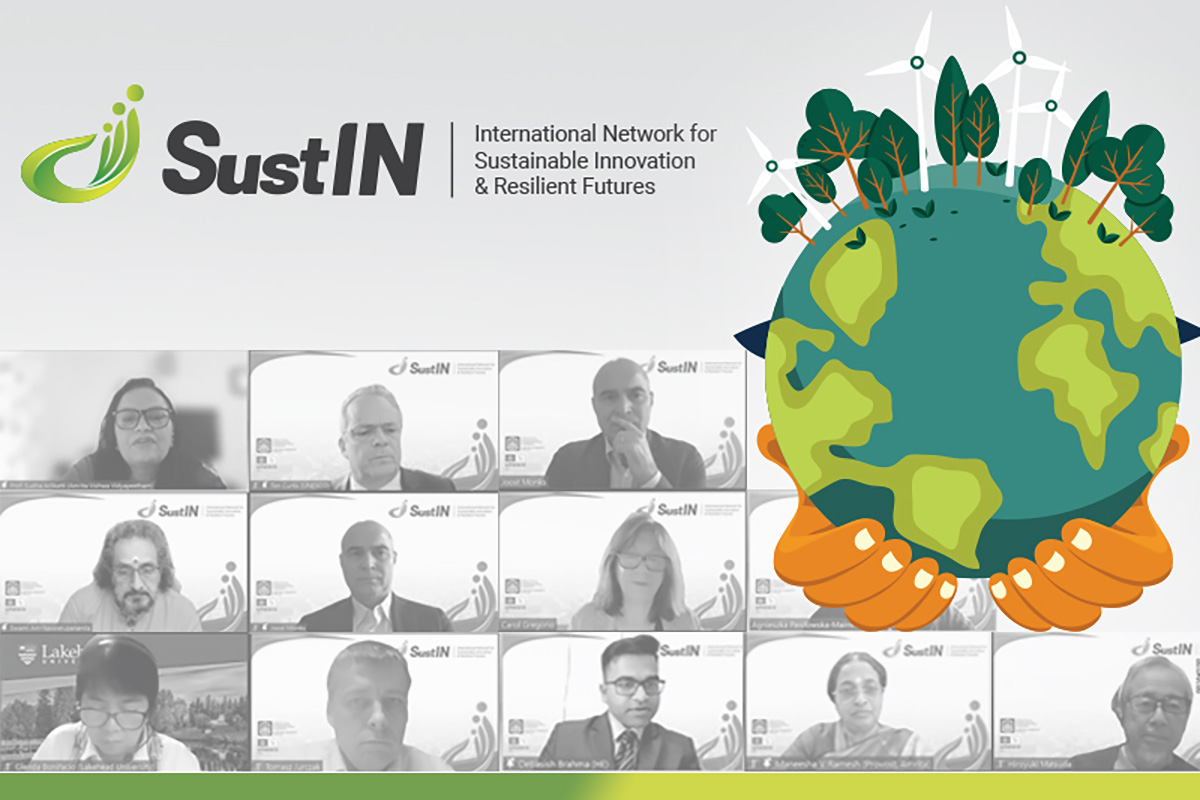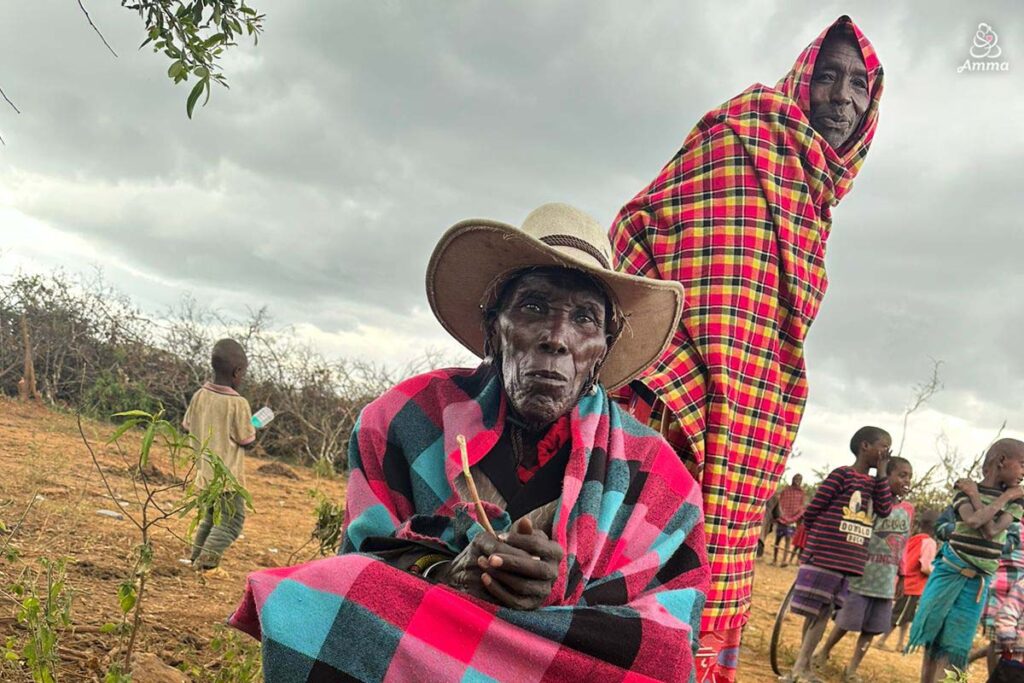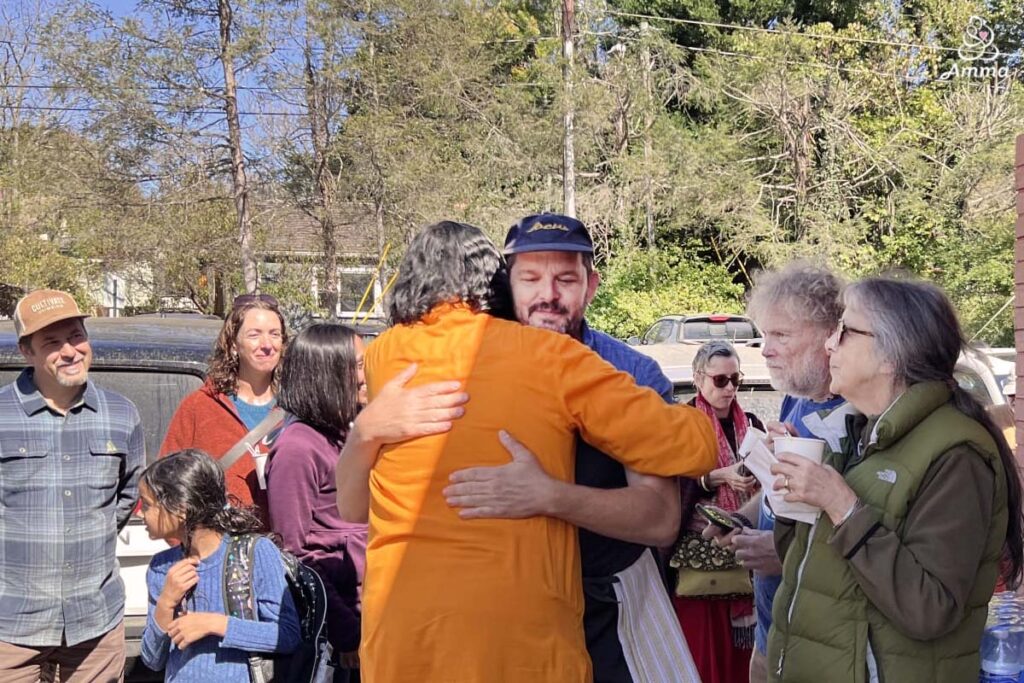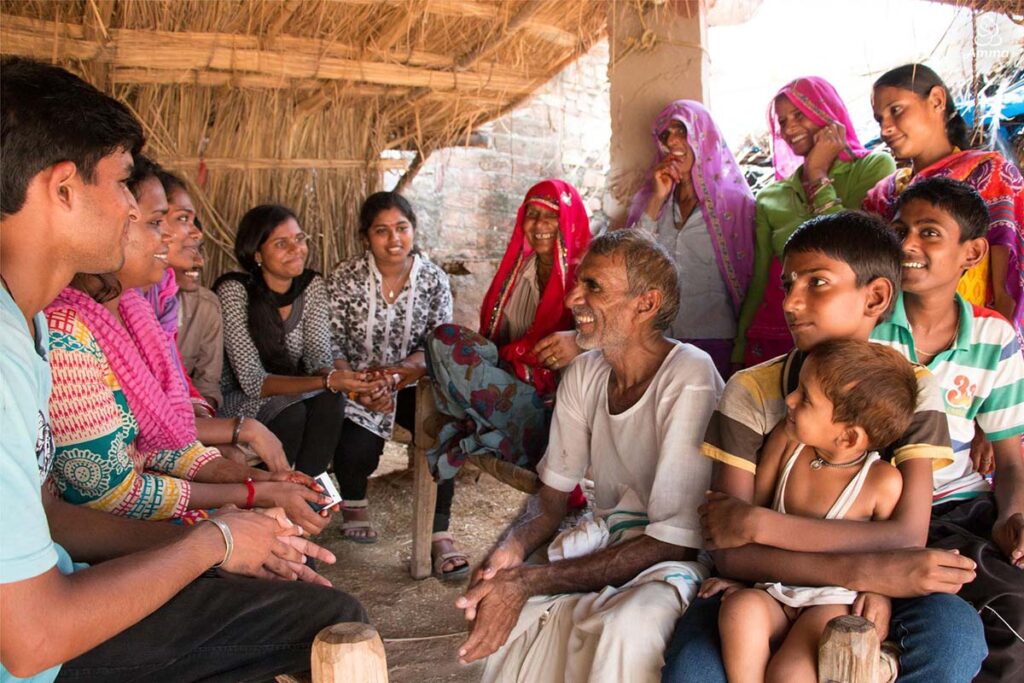Amrita University has inaugurated the International Network for Sustainable Innovation and Resilient Futures (SustIN). The initiative is committed to helping create a sustainable future for all and launched with 60 registered members, including 36 UNESCO Chairs from 24 countries. SustIN is under the auspices of the university’s UNESCO Chair on Experiential Learning for Sustainable Innovation and Development. Its beginning was a landmark virtual event that coincided with the UN International Day of Mountains.
The inauguration, held December 11-12, 2023, gathered thought leaders, UNESCO Chairs, institutional partners, and organisations from around the world. It provided a common platform to outline the network’s objectives, highlight focus areas, discuss upcoming events, strengthen collaborations, and build partnerships. It also fostered extensive deliberations on the development of a global curriculum for sustainable development.
Mr. Tim Curtis, UNESCO Representative, UNESCO New Delhi Regional Office for South Asia, was the Chief Guest. In addressing the gathering, he expressed that the launch of SustIN is a testament to Amrita’s efforts to build a community of socially responsible and engaged experts worldwide.
“We are all too much aware of the multitude of concurrent and compounding challenges we are facing today. In achieving the agenda of the 2030 Sustainable Development Goals—which we understand now are well off track—will require innovation. Indeed, innovation will be key to trying to respond and catch up on these,” said Mr. Curtis.
“It’s been said necessity is the mother of invention, and today’s world has so many needs. So this network is highly timely to remain relevant, open-minded and flexible to the uncertain and ever-evolving world that we are living in today.”
Mr. Curtis added this kind of collaboration brings together collective action from diverse fields that can really give some hope to finding solutions. He said the network’s primary goal to develop a joint curriculum and initiatives across global partnerships can definitely accelerate sustainable innovation and development.
He also said that another crucial element is to engage with teachers and educators who are at the front lines of sharing the complex and multi-faceted array of knowledge about sustainable development. Materials and training that reinforce their capacity supports them in transmitting the interdisciplinary values-laden subjects to their students.
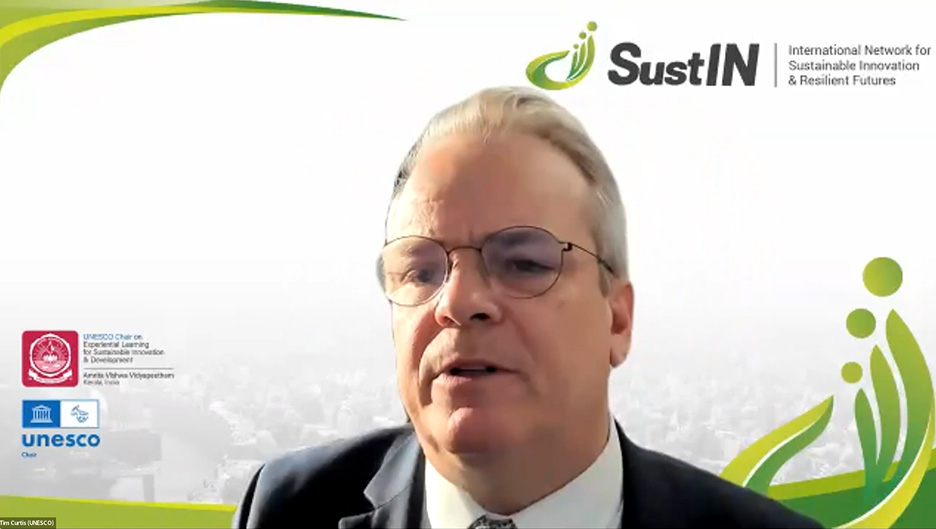
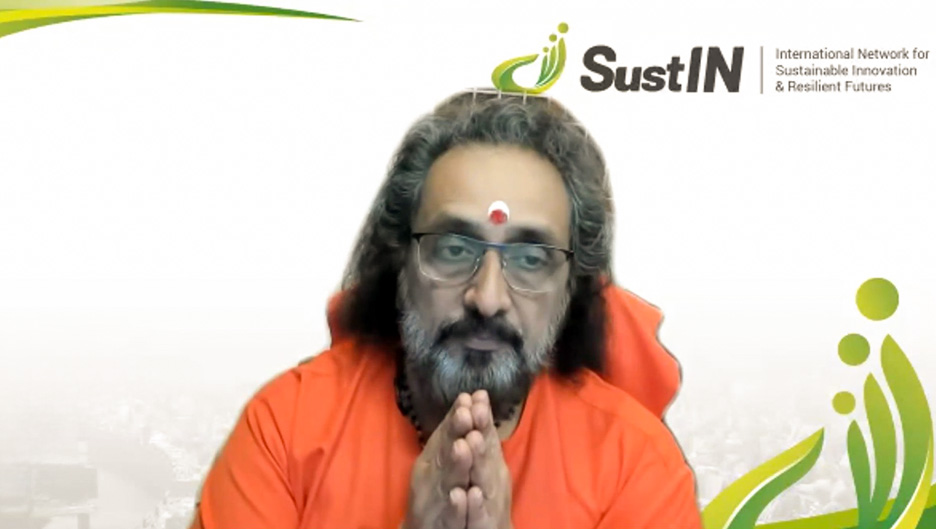
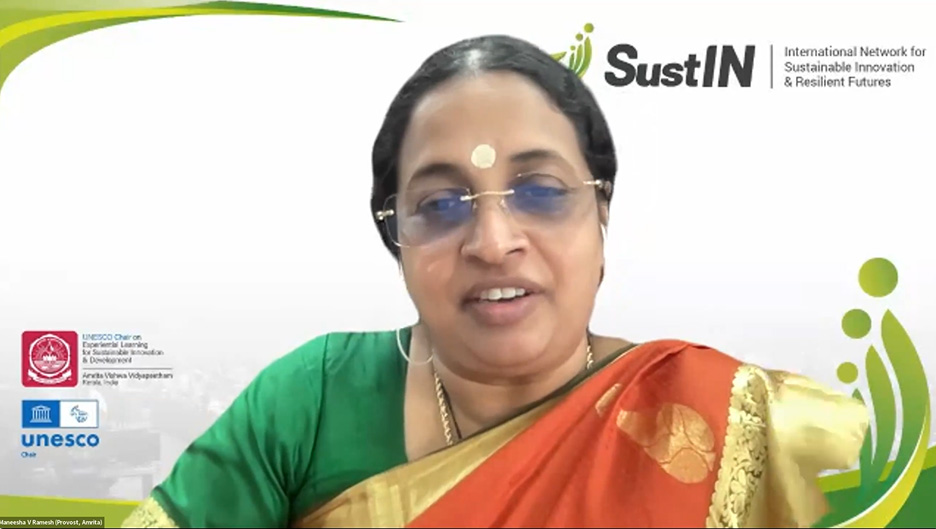
Swami Amritaswarupananda Puri, Vice-Chairman of the Mata Amritanandamayi Math and President of Amrita University, also spoke. He emphasised the critical juncture the world is facing, advocating for collective action guided by ancient traditions. He addressed the root cause of humanity’s problems, attributing conflicts to greed and emphasising individual responsibility for each one of us as stewards of the Earth.
“While considering scientific and technological solutions to reduce the impact of natural and manmade disasters that threaten humanity, let us also embrace compassion, the most simple, natural, and effective way to achieve the ultimate remedy. Amma says if we approach Nature with humility and love, Nature will serve us as our best friend. A true friend that will never let us down,” said Swamiji.
Dr. Maneesha V Ramesh is Amrita University’s Provost and the UNESCO Chair on Experiential Learning for Sustainable Innovation and Development. She emphasised the importance of empowering youth with knowledge for sustainable development. She explained this demands the creation of a global network of academicians, community service organisations (CSOs), community members, etc. to develop a collaborative educational curriculum, alongside partnering on initiatives.
“Amma reaffirms this in her words, ‘We are all beads on the thread of love, and the universe and every living thing in it have an unbreakable connection to each other. The cosmos is a vast interconnected network. Think of a net that is stretched out by four people holding its four corners. If it is shaken slightly in one corner, the vibration is felt all over the net,’” said Dr. Ramesh.
“We believe that above and beyond, collaboration and engagement with partners from the Global South and North will bring together unique perspectives to expedite our collaborative efforts to make sustainability a reality for the most vulnerable communities around the globe.
“Hence, I sincerely hope that this network and our collective efforts shine a positive beacon of light to the future. I’m really grateful to all the members and sincerely hope that this paves the way towards a collective for the greater good.”
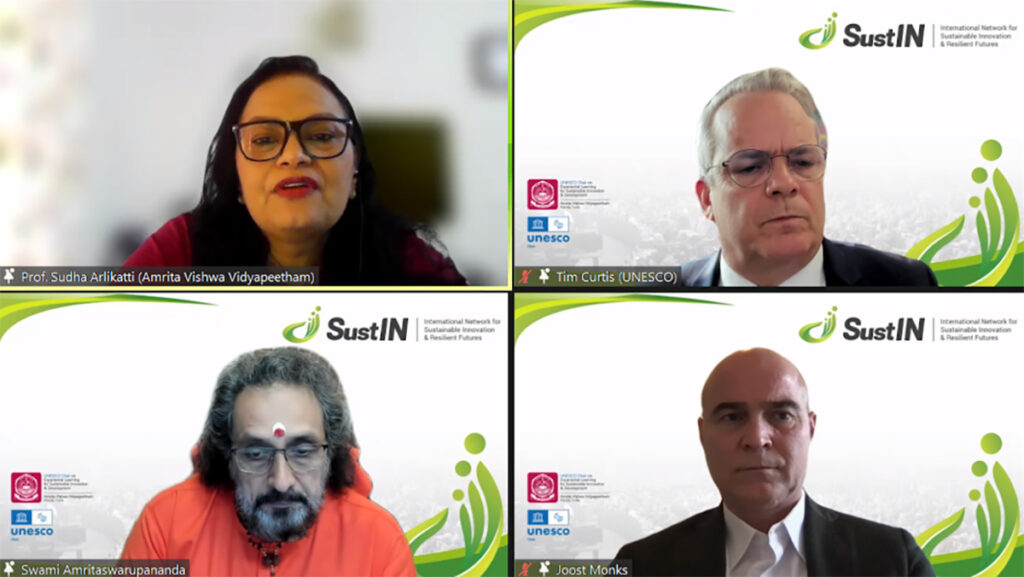
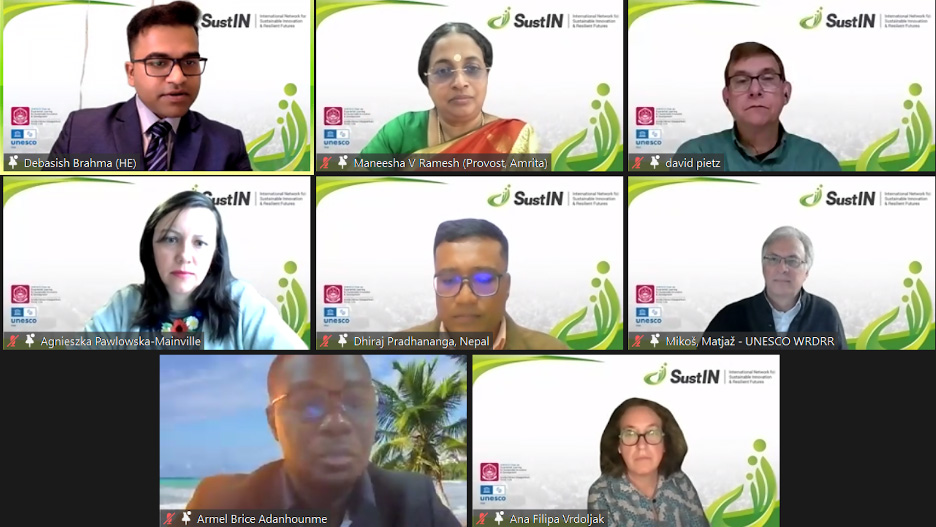
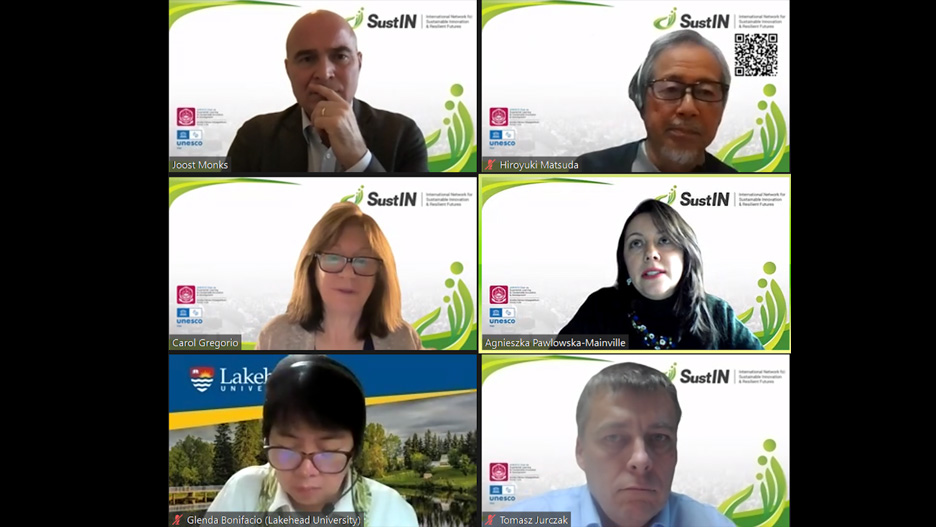
Mr. Gopinathan Achamkulangare, Former Inspector, Joint Inspection Unit of the United Nations System, was also present. He said, “In the pursuit of sustainability, true leadership transcends mere participation in events; it demands a commitment to transformative organizational structures, clear objectives, and measurable actions.
“Just as the Kyoto Protocol laid the foundation for the ambitious goal of NetZero, our journey toward a sustainable future requires thoughtful programs tailored to uplift global south countries. Let us not merely attend to the urgency of the moment but, through strategic leadership, forge lasting collaborations with academia, charting a course for sustainable problem-solving that stands the test of time.”
Also gracing the occasion was Dr. Joost Monks, Executive Director of the Humanitarian Quality Assurance Initiative and Advisor, UNESCO Chair on Experiential Learning for Sustainable Innovation and Development.
Mr. Curtis added it was befitting the launch of SustIN coincided with the United Nations International Day of Mountains, December 11th, It is crucial for young people to be better educated on the importance of managing and maintaining mountain ecosystems through science-based information, as their waters flow downstream and affect subsequent ecosystems until they reach the oceans.
“The people that live in mountain systems have long-held traditional knowledge systems which they have developed over centuries, and we must have the humility and the open-mindedness to understand these and bring them into our management system so that they can be harnessed. Because nothing will replace generations of human existence within a specific ecosystem and that knowledge is invaluable,” said Mr. Curtis.
Among the UNESCO Chairs who have joined SustIN are UNESCO Chair on Mathematics, Science and Technology Teacher Education for Sustainable Development; UNESCO Chair on Seismic and Tsunami Hazards Studies – Earthquakes; UNESCO Chair on Sustainable Development, Early Childhood, Inclusive Education and Gender; UNESCO Chair in Environmental History; UNESCO Chair on Prevention and Sustainable Management of Geo-Hydrological Hazards; UNESCO Chair on Restoration and Conservation in Heritage Structures; UNESCO Chair on Gender, Wellbeing, and a Culture of Peace; UNESCO Chair on Mountain Water Sustainability; and UNESCO Institute for Higher Education in Latin America and the Caribbean.
The institutional partners include European Regional Centre for Ecohydrology; University of Missouri; Politecnico di Milano; University of Texas at Dallas; Toronto Metropolitan University; Northern Illinois University; University of Arizona; Arizona State University; University of Wyoming; Western Sydney University; Stanford University; University of L’Aquila; Tribhuvan University, Nepal; Biosphere Reserves Institute, Eberswalde University for Sustainable Development; and Planet Green Force, to name a few.
For more information, visit the network portal: sustinnetwork.org


